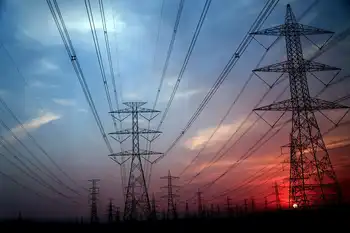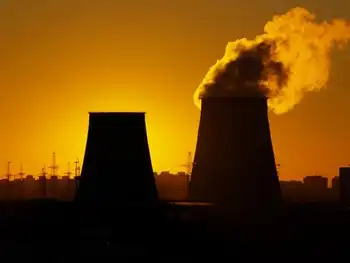Utility to boost peak power by 2010
By Knight Ridder Tribune
NFPA 70e Training - Arc Flash
Our customized live online or in‑person group training can be delivered to your staff at your location.

- Live Online
- 6 hours Instructor-led
- Group Training Available
The turbines, to be built near a PPS substation at 4801 Schneidman Road, will mark the first time the company has generated power. Paducah Power will end its contract in late 2009 as a TVA distributor, opting for what is projected to be cheaper electricity starting in mid-2011 from the $2.9 billion Prairie State Energy Campus in Washington County, Ill., south of St. Louis.
PPS Chairman Ray McLennan said the turbine electricity will supply "peak" electricity before and after Prairie State power becomes available. Owned by eight utility groups in six states including PPS, Prairie State will supply 75 to 80 percent of Paduca Power's electricity.
McLennan said most of the power needed in the interim will come through a bridge contract with another supplier. "We've never actually generated our own electricity," McLennan said. "We looked at the people who were considerably cheaper than anybody else - Henderson and Owensboro - and they owned their own generation for almost the past century."
Cost savings Prairie State electricity is expected to cost about $40 per megawatt hour, enough wattage to indefinitely run about 400 homes. Although the gas-fired power will cost about $80 per megawatt hour, it will prevent PPS from having to pay as much as four times that much on the open market during peak demand, Paducah Power General Manager Dave Clark said.
"We would have to pass those extra costs on to our customers."
Clark said there will be an opportunity to sell unused peak power to Prairie State. McLennan said the $80 figure includes capital costs, as well as the expense of buying land and running 10 miles of piping from Texas Gas at Palma. PPS will amortize the cost over 30 years.
"Our scenario is we'll operate the turbines less than 1,000 hours a year, and the cost will still be below what we'd be paying TVA around the time we leave," he said. TVA plans to raise rates about 8 percent next spring. Sound, emissions Although the substation area is sparsely populated, Paducah Power has an additional tract of land optioned and wants to buy property next to it, McLennan said.
"If that happens, it will give us a big buffer." He and Clark said they anticipate the plant being quiet enough to be able to talk nearby, based on their visits to other similar plants.
The PPS turbines will have noise buffers around them, they said. The Kentucky Division of Air Quality issued a draft permit Nov. 19, limiting the plant to 11,000 hours of operation and 225 tons of nitrogen oxide emissions annually. McLennan likened the emissions to those of a jet engine.
"It's a major source, which means more than 100 tons of nitrogen oxide per year," said John Lyons, air quality division director.
"It depends on how often the plant runs as to how much it actually emits."
Because of high gas prices, only two other companies elsewhere in Kentucky have built peak plants since a moratorium was lifted several years ago, Lyon said. Paducah's is the first permit issued since.











